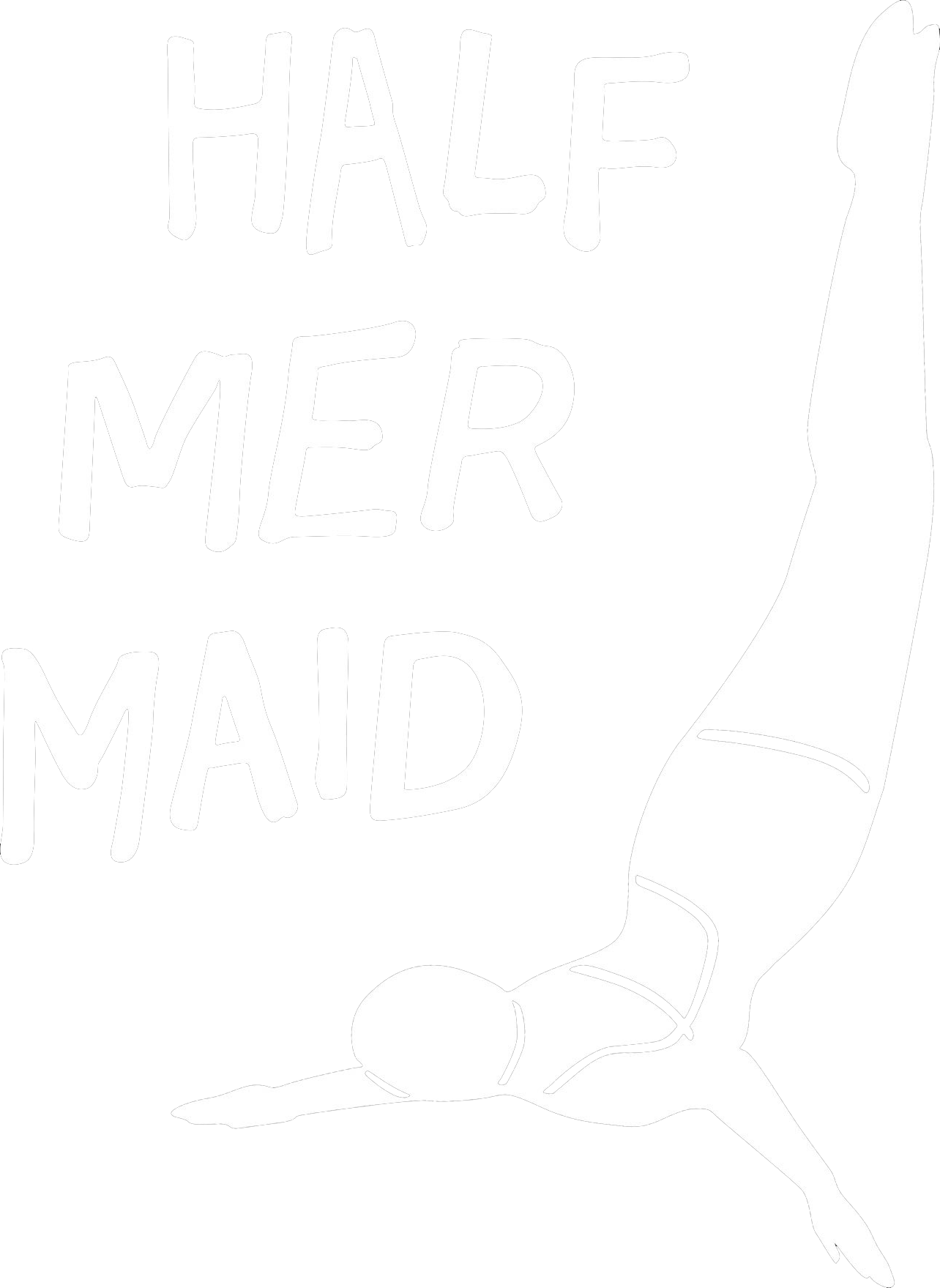
In this edition of our video game production blog, we talk 70s horror, COVID’s impact, game conferences and more. The following is an edited transcript of a conversation between Natalie Watson (our Associate Producer) and Jeff Petriello (our Producer). Listen to that convo here:
Jeff Petriello: Hello, welcome to the Half Mermaid Production blog. I’m Jeff Petriello
Natalie Watson: and I’m Natalie Watson
JP: and we are producers at Half Mermaid, a game studio in Brooklyn, founded by Sam Barlow. We’re here to talk about what we’re working on and how we work on it. So… Natalie, it’s good to talk to you again. It’s been a little bit.
NW: It’s been a busy month.
Big Moves
JP: We are at the end of September 2020.
NW: Yes, getting ready to send out our newsletter for the next month. I feel like so much has happened. We’ve done so much and yet most of it we can’t talk about! The eternal problem.
JP: Yeah, it can be a little frustrating. But I think we are well-equipped to give some insight into our process. I am ever so slightly distracted this week because it’s my last 48 hours in Provincetown. I am getting ready to pack up, move out of my summer escape and return to Brooklyn. So that’s what my big personal change this week. I’m definitely excited to return. The Half Mermaid office is up and running in Brooklyn, so I’ll probably be there next week, which is exciting.
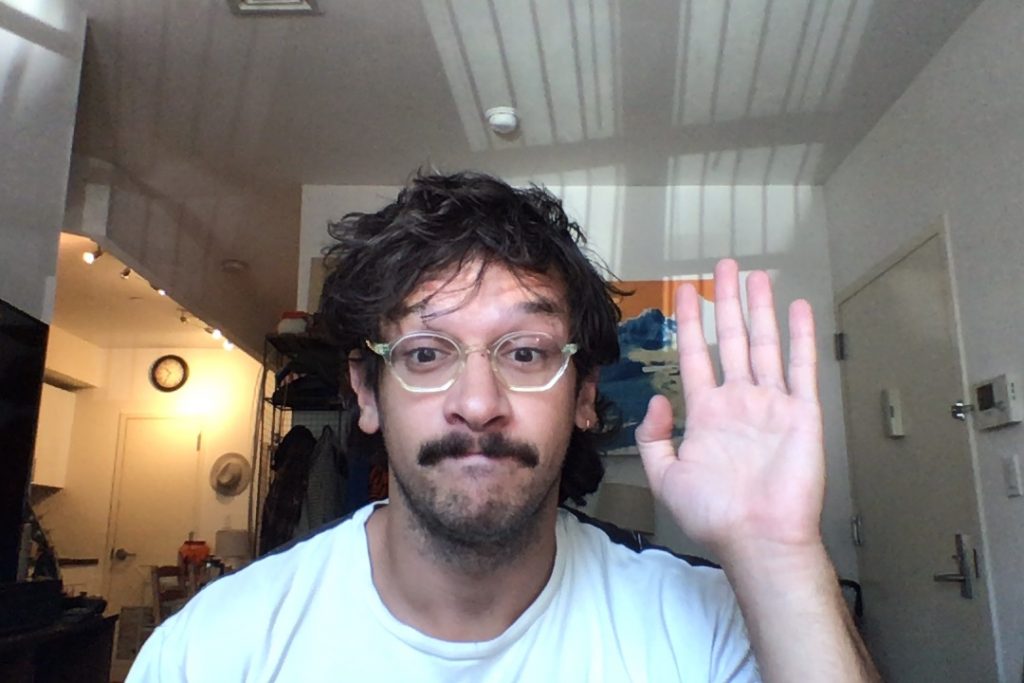
NW: That’s super exciting. I’m sad that I will be the only one not there, but it’s really exciting that you and Connor and Sam will get to be working in the same space again and collaborating . I think that’s so great.
JP: Yeah, I’m really excited about it too. I think it makes a big difference to be together, but we’re also lucky to have you in Los Angeles. Since we’re creating a live action video game, it’s not the most irrelevant town for our production. It’s a great asset to have you there and you can always come visit. Don’t forget.
NW: Yeah, as soon as things calm down, I’d like to come visit and spend a couple of weeks in New York. Be in the office with everyone. That would be nice.
JP: Yeah, I look forward to that. So it’s been a few weeks since we recorded. What influences – things that you’ve read, or played or watched – have really resonated with you in the past few weeks?
Drag Me to Hell
NW: I haven’t been watching as much. I’m trying to think of the movies that I’ve been watching. They’ve all been bad, bad movies. All I’m watching are bad movies. I did play a game that had a much bigger impact on me than I expected it to: Hades.
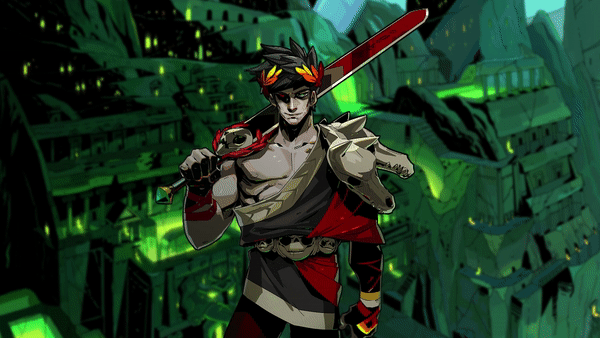
My friends have been talking about it for a while now. I had a bunch of friends who played in Early Access and loved the game, but I wanted to wait till it was officially out before I tried it. I wouldn’t say I’m a Rogue-like fan per se.
Previous to last year, I did not have a history of loving rogue-likes. My first Rogue-like was Hollow Knight, I believe, and I absolutely fell in love with that game. But I tried out Dead Cells and I never really got into it, and I played a little bit of Enter the Gungeon but never really got into it. So I wasn’t really sure if I was going to like Hades, especially since it was less scripted than Hollow Knight. Hollow Knight has a Rogue-like feel, but it’s not really true in its mechanics. Slay the Spire is probably the only other Rogue-like game that I’ve really enjoyed in the past couple of years.
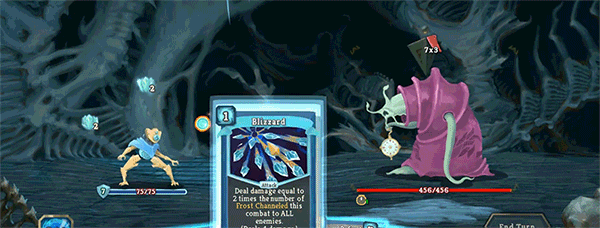
I think that Hades reminds me a lot of the things that I loved about Slay the Spire. It really just took me by surprise how much I immediately fell in love with the characters. I think they do an incredible job of characterization, of just bringing something new to this iteration of Greek Gods and mythology. I’m not really a Greek mythology stan by any means. I didn’t know if the setting was really going to be my thing, but I think their take on all of that was so immediately striking.
It made such an immediate impact on me and brought me into the world in a way that I actually cared about the characters that I was interacting with. I didn’t want to progress as quickly because I wanted to spend more time with the other characters. There were a couple runs where I’d be like “OK, I’m kind of ready to call this run,” because I wanted to return back to home base and check in with everyone. It’s fantastic.
I’m really impressed by Supergiant. They are the developers behind Hades, and I highly recommend giving it a try if you’re remotely interested. It has some really strong accessibility features in terms of managing difficulty and progress. So I think it’s worth a try for most people.
JP: What are you playing it on?
NW: I’m playing it on PC and Switch. I think they are bringing cross-save eventually between PC and Switch, which is really cool. I would definitely like to take advantage of that. The idea of being able to go from my desk and playing Hades to my bed and playing the same save of Hades is very attractive to me.
JP: Is there a preference?
NW: Generally I prefer playing Hades on my PC with a controller because I can read the text a little bit better. The text is a little small if your TV set up is pretty far away from where you’re reading. I will say I’ve gotten better drops on my Switch. I feel like I’ve been punished by my PC runs and my Switch runs have been so much stronger, but I definitely prefer playing on PC for the moment.
JP: I definitely wanna check out Hades. I was a big Bastion fan and it just looks amazing and everyone’s talking about it. I just couldn’t decide if I wanted to download it on Steam or Switch, but when I get back home to Brooklyn and feel my set up out, I think that’s definitely my next purchase.
NW: I highly recommend.
Satanic Alien Children
JP: I have also been watching a lot of bad movies coincidentally, and one that has stuck with me in particular is called The Visitor. It’s a 1979 Italian-American horror production directed by Julio Paradisi going by the name Michael J. Paradise (which is an iconic change-up). It’s interesting because it sits sort of in between the time periods that we’ve been talking about for Project A. So it’s not directly relevant to where we are in the timeline, but in terms of exploring 70s horror, diving into that was really interesting.
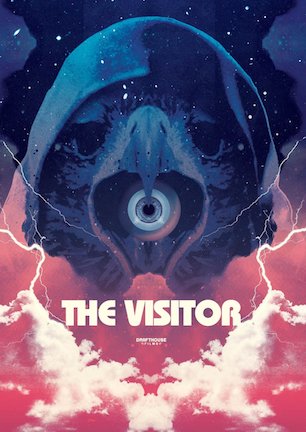
It’s very much an absurd, ridiculous movie with terrible special effects and really awkward, sometimes problematic depictions of evil children. It was a lot of movie. I watched in my friend’s backyard, which was a really lovely experience, but it was like…”WTF, what are we watching?” But visually and aesthetically, there were some great moments. In fact, the very first two scenes are so striking. It really got my mind back into that 70s horror space, feeling out those vibes. It definitely stuck with me. I can’t say I recommend it, but if you wanna take a bunch of edibles and stare at something bizarre, it could be worse.
Capturing “My First Orgy”
So The Visitor was definitely up there for me, and then interestingly enough, an Instagram posted by Playboy magazine that my friend sent me has stuck with me a lot.
An older friend of mine told me about this unforgettable picture that he saw in the early 70s. It accompanied an article by Dan Greenberg in the Playboy print edition called “My First Orgy”, and it is a photograph by Ken France taken in Las Vegas of the behind-the-scenes of the editorial photograph by Richard Fegley for that article. I can include it in our show notes, but it’s a really cool black and white behind-the-scenes photograph where everyone’s naked and kind of intertwined in a giant snake pit of bodies.
It just reminded me so much of a Blow Up, which is a big cinematic influence for us as a studio, also from the 70s. It’s just a great behind-the-scenes look at how people were exploring sexuality and depicting that sort of “free love” that was growing after the late 60s. It’s just a really gorgeous image, and it stuck with me this week, so that was another thing. I don’t think we’ve talked about a photograph, but it really did land with me. So I wanted to share that as well.
NW: That’s so cool. You said your friend had just randomly mentioned it to you.
JP: As queers do, we were talking about how we discovered our sexuality. This photograph was really instrumental in my friend’s development and discovering his desires. There aren’t usually men in Playboy, but in this photograph, there are male and female bodies. Obviously, there’s no full frontal male nudity in it, as there never is in Playboy, but it sparked his interest. I thought that was really a cool story, and I was excited to see that photo. Not that I’m endorsing Playboy as a print magazine. They’ve got a problematic history, but some cool art always comes out of effort in some way, I think, so that was a cool moment.
So what are some other things that you wanna talk about in terms of production in the past few weeks that you’d like to share?
Working with COVID-19
NW: We’ve been working on the road map for the next indeterminate amount of time in our development and production schedule. In figuring all that stuff out, we’re thinking about how COVID will play a role. That’s really been on my mind a lot. We’re trying to speak to as many people as possible that are currently in production or have accomplished production during COVID and ask what that experience has been like.
Obviously we’re paying a lot of attention to what happened on the Batman set. What happens when the lead actor catches COVID? How does that come to happen? How do we protect people? How do we make sure everyone’s safe? So I think that’s been on all of our minds as we’re ramping up, and it feels like a very nebulous thing that’s constantly changing.
People are constantly reacting and just trying to do the best they can in the moment that presents itself. Seeing more and more people go back to production has been shocking because it feels like “Oh my god!” We’re still in the middle of this pandemic, but I think those are probably much more controlled environments than other work environments that you may be used to.
JP: Yeah, I found that really interesting as well. It seems like from whom I’ve talked to, generally speaking, there’s a 10 to 15% increase in production costs to accommodate COVID regulations. Dealing with the guilds, from the Actors Guild to the Writers Guild to your crew guilds – everyone has their own guidelines, trying to make sure everyone is safe, which is great.
Who knows what the situation is going to be like three months from now, six months from now, a year from now? There’s a lot of outstanding questions, but it has been reassuring to speak to folx who’ve done productions, who’ve done them safely. It really was inspiring and interesting to see the plans that people are coming up with.
Who knows what the situation is going to be like three months from now, six months from now, a year from now?
-Jeff
One of the interesting things that I saw was everybody’s hiring health and safety officers that have a few assistants on set. They help to sanitize things, make sure that everyone has their test administered correctly, staying on top of the COVID plan to make sure everyone is safe. Those positions are new and I think people are feeling their way through them. We’re going to see how long they last, and how training develops for them will be really interesting, but it’s a new part of production. Making sure everyone gets tested, working in pods, working with PPE supplied for everyone. Crafty is changing how people eat, when they eat, where they eat, so it’s a whole new world.
It’s reassuring that people are figuring it out in a safe way, and I just kind of love those conversations that we’ve had over the past few weeks. I’m excited to dive into it ourselves once we ramp up actual production for Project A.
NW: It really feels like people are taking their time with this. It doesn’t feel like people are really rushing to get back in. All of the unions are really making sure that their members are protected and are looking out for their best interest. So all of that has been very reassuring in a world that doesn’t have a lot of reassurance. At least this has been a sign of hope and genuine excitement at the possibility of productivity. So that’s been big for us.
Supporting Game Devs of Color
I think outside of production, we’ve also been participating in a lot of really cool community organization that’s been happening. Most recently is our involvement with GDoC [the Game Devs of Color Expo] and just what that was like as an attendee. if you were not able to attend, I’m so sorry. It was really an incredible experience. It was two days of some of the best talks I’ve heard in a long time in a games con. I’d like to shout out GDoC and encourage you all to follow them on Twitter @GDoCExpo. Hopefully, they’ll be archiving some of their talks and panels. They do have their intro direct, that is live on their YouTube now, so you can check that out. Jeff, were there any specific panels or talks that eally jumped out at you?
JP: Yeah, so the Game Devs of Color Expo was last weekend as Natalie said, and we as a studio were a Community Sponsor. I attended as an ally and a listener, and was so amazed by the talks that I saw. Specifically, I wanted to shout out Limpho Moeti of Nyamakop studio, which is an incredible studio that puts out these beautiful games that center the African experience. She spoke on “the importance of creating authentic black characters and experiences outside of the struggles and pain of being black”, which was so wonderful to see and hear.
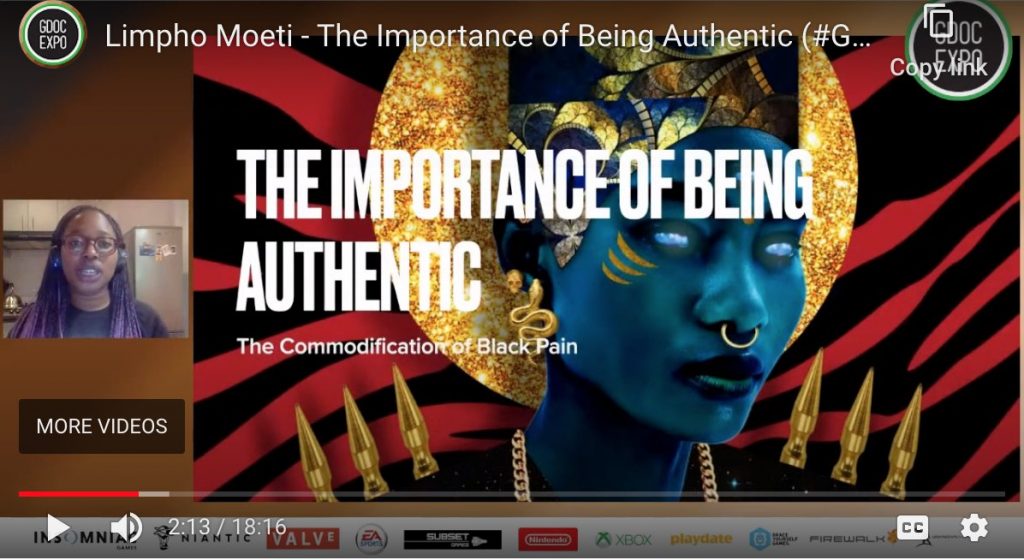
She discussed all these incredible sub-cultures and communities in Africa, both where she was from and elsewhere on the continent. There were photographs that were so beautiful and inspiring and opened up listeners possibilities for all types of stories. She just cracked the door open for so much imagination. I was so impressed with that and just excited about them. I followed Nyamakop immediately on Twitter and I can’t wait to check out everything that they put out. Limpho, thank you for speaking. It was so cool.
NW: Yeah, I wanted to shout out Sisi Jiang’s talk, which was titled “Authenticity is Balls”. The gist of their talk was “Do you feel petrified at whether you’re not ‘identity’ enough to create games about a certain topic? Does the idea of representing your entire group give you hives ? Well, Worry No More. In this talk, I will be exploring the benefits of ignoring the critic in your head.” I thought this was such an important talk for me, for anyone that feels that by making something you’re carrying the burden of an entire identity and entire community on your back. It’s really hard.
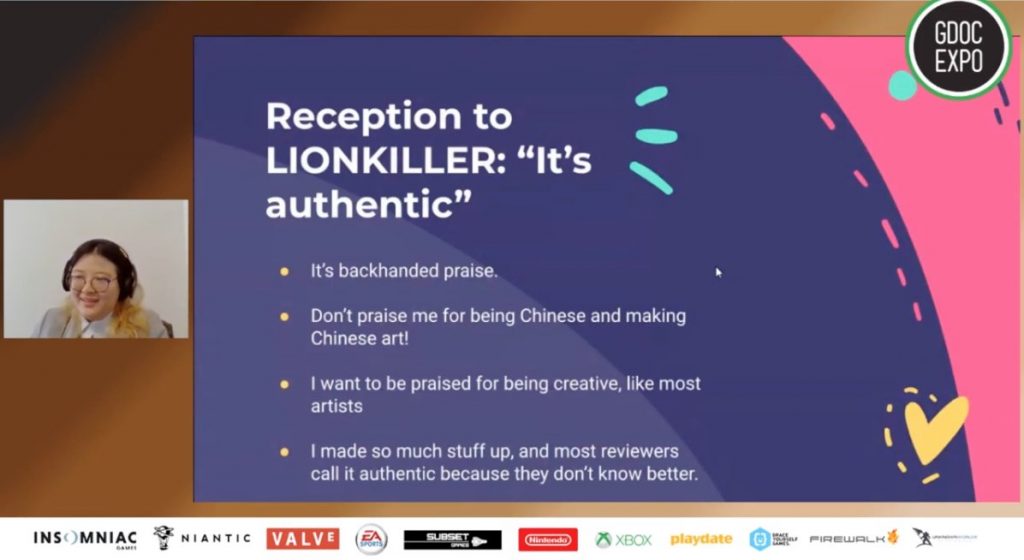
Being mixed race myself, I think Sisi’s talk really spoke to me and the feeling like I’m not enough of this or I’m not enough of that to be able to speak to either one. It was just very empowering to hear them talk about their experience making LIONKILLER. It’s just one of those talks that I just think everyone should listen to. It’s so, so important to think about what we bring when we bring representation into a game, what else we’re bringing with that. Definitely give them a follow. Their Twitter is really, really good. They’re actually currently talking about Hades right now, which is very pertinent to me.
“Being mixed race myself, I think Sisi’s talk really spoke to me and the feeling like I’m not enough of this or I’m not enough of that to be able to speak to either one.”
– Natalie
And like I said, keep an eye on the GDoCExpo’s Twitter for any archives that may come up, and I encourage you to go through the schedule and follow a lot of the panelists and collaborators that they worked with. I genuinely think that they are some of the best people in the industry right now and are worth including in your timeline.
JP: Also just shout out to the organizers. It was so well done. It really was an incredibly efficient, informative, inspiring digital conference. I really loved the format. The talks moved quickly and seamlessly, in my experience. There was active discussion around them. There was cool stuff happening on Twitter, on Discord, there was just a lot of really great organization that went into it. I was super impressed. I think for anyone who is struggling with how they’re going to run an event virtually, the GDC Expo was an incredible model for that.
Accessibility in Games and Law
There’s another conference that’s happening actually today, September 28th, and tomorrow. It’s the Game Accessibility Conference, that’s put on by the IGDA [International Game Developers Association], and I am sort of ambiently attending. There are some really cool discussions around accessibility, everything from controller mapping to cultural accessibility. There is a lot of really cool stuff going on there, so I wanted to shout that out as well as we end this beautiful month in community game events, which has really been cool.
I’ve also wanted to shout out Playcrafting. Over the last few weeks I took a small online course there called “Legal Roadmap for Game Devs” that was led by an attorney named Daniel Koburger of Koburger Law. He specializes in video game law and represents a lot of indie developers. I learned a lot in that course. It was relatively affordable. Playcrafting has some great resources for people. They also have a Discord channel that I think they’re imminently revamping.
I really recommend that if you are an in development or you’re interested in learning more about the development side of things, sign up for the Playcrafting newsletter and look out for the events and learning opportunities that might suit you. I found it to be a really cool experience. It was over the course of three evenings, spaced out. It was easy to arrange my schedule around.
NW: Sounds awesome. That’s so cool that that’s available as a resource to you and to other game developers. I feel like legal advice is one of those things that’s it’s mostly inaccessible, so Playcrafting organizing something like that is really cool.
JP: Yeah, I mean, you can’t ever get legal advice technically without paying for it, but in terms of big red flags to watch out for as you’re developing, it was really interesting. As someone who didn’t know a lot about the compliance for the newer privacy laws, learning about a lot of that stuff was really interesting and important. As governments begin to regulate more what we are allowed to do with data, it was cool to get caught up on that. Daniel Koburger was a great teacher. If you have a legal video game question, he might be a good person to reach out to.
Museum Madness
NW: Awesome! I think we have one last thing going on right now. We were contacted recently by the A&D museum in LA. They’re doing a digital exhibit called “Designing Worlds”, and they asked us to be a part of it. We were super honored, and of course accepted. The exhibition has just gone live this past weekend, so if you go to digitalaplusd.org, you can see it. There are a bunch of other games included – Monument Valley, Inside, Return of the Obra Dinn, Florence – we’re in very good company.
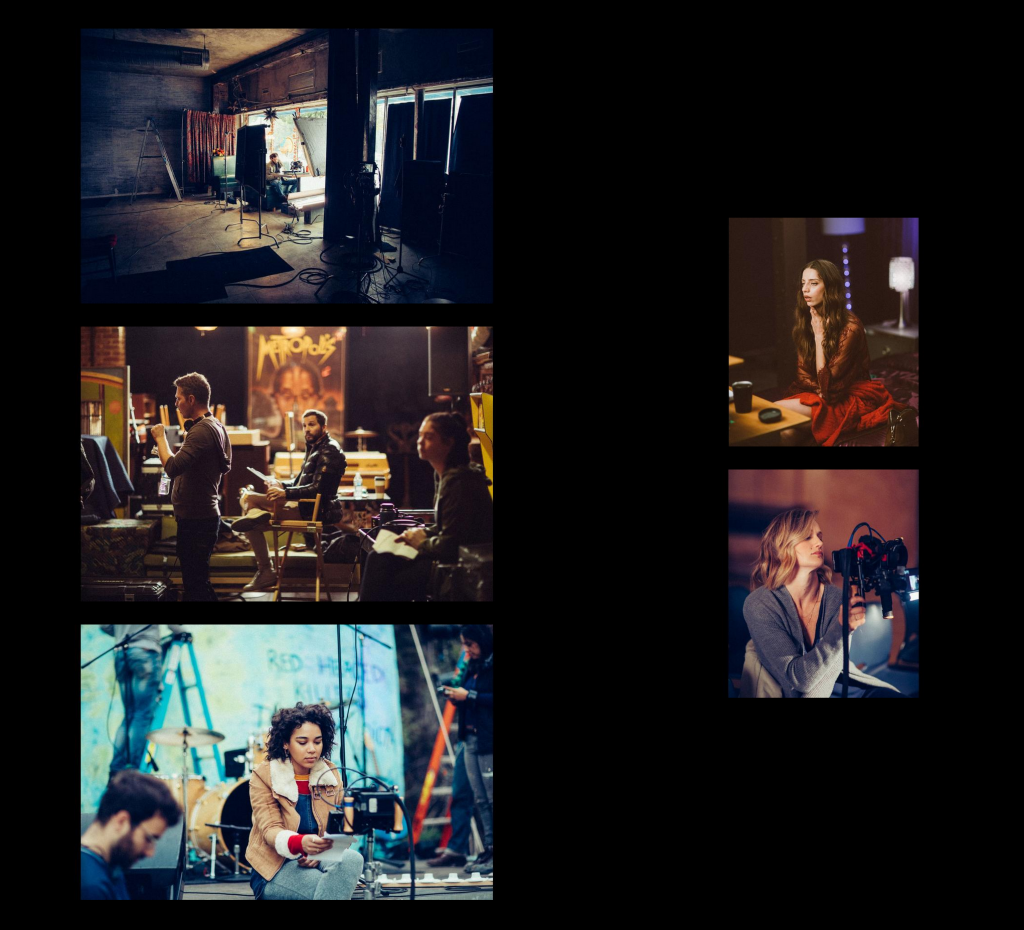
It has videos from each of the developers talking about the development process, lots of cool concept art for each of the games, and it’s a fun way to spend the afternoon. So definitely go check that out, check out the Telling Lies portion of the exhibit under the story and narrative part, and I really hope you enjoy it. I’m looking at it right now and it looks really good. The way that they laid this out looks very cool.
JP: Yeah, I’m so happy we got to be part of that. Really cool.
Yeah, so as usual, if you have any questions or feedback for us, please reach out either to [email protected] to get us by email, or personally, you can find me pretty much anywhere on the Internet @TheBeff.
NW: You can find me on Twitter @NatalieWatson.
JP: Cool, so we hope to hear from you there and talk to you next time.
NW: Yeah, thanks everyone. Bye Jeff!
